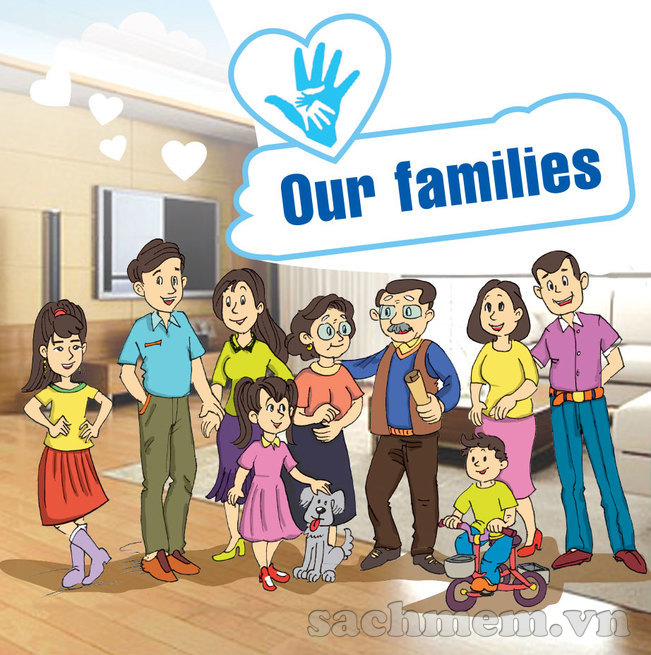The generation gap
Sam: Do you visit your grandparents every weekend?
Ann: Well, just my mom's parents, but I don't need to visit my other grandparents. You see, I live in a big house with my dad's parents and my uncle's family.
Sam: I see. You're part of an extended family then. You certainly have more fun than me. I live in a nuclear family with just my parents and my younger brother.
Ann: That's right. I think my parents are luckier than others because they don't have to worry about childcare. My sister and I also learn a lot of skills from my grandmother.
Sam: So, are there any problems between the generations in your family?
Ann: You mean a generation gap? Well, there are. My grandma has her own beliefs about things like hairstyles, appearance and table manners. She thinks women must do all the housework while my parents believe family members should share the chores.
Sam: What about your grandpa?
Ann: He‘s the most conservative person in my family. He thinks that I ought to get a job in a state-owned organisation after university. He says I should follow in his footsteps.
Sam: Oh, really? Do your parents share his viewpoints?
Ann: No, they don‘t. My parents are more open-minded. They just give us advice, but they never try to impose their decisions on us.
Sam: You mean there's no generation gap between you and your parents?
Ann: Well, sometimes conflicts do happen, but we sit together and discuss. We all think we need to understand each other better.
Sam: Lucky you! You must be so happy to have such a great relationship with your parents!
Ann: Thank you!
